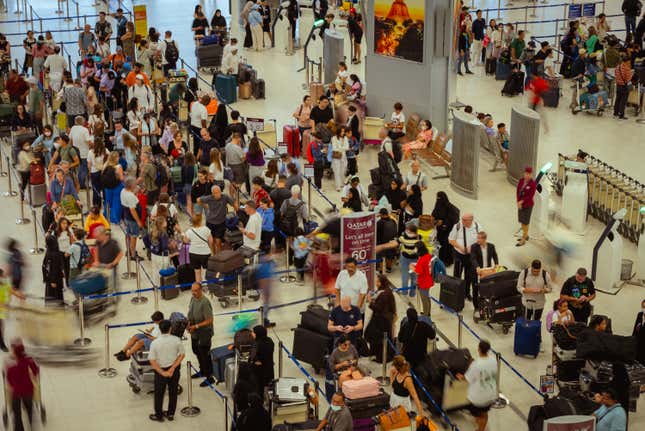
In This Story
Computer systems at businesses around the world failed after cybersecurity firm CrowdStrike bungled an update and Microsoft reported issues with its Azure cloud service.
“CrowdStrike is actively working with customers impacted by a defect found in a single content update for Windows hosts,” Crowdstrike CEO George Kurtz wrote on X Friday morning. “This is not a security incident or cyberattack.”
Kurtz added that a “fix has been deployed” to resolve the issue and that customers should visit an online support portal with the latest updates over the issue. Over half of Fortune 500 companies use CrowdStrike’s software, according to a promotional video from the firm earlier this year.
Meanwhile, Microsoft users across the world are grappling with the “Blue Screen of Death,” posting pictures of their frozen screens online as they were left unable to access corporate laptops and computers. In a statement online, Microsoft said the issue was caused by an update to CrowdStrike’s Falcon Sensor software, which is designed to protect against malware and “much more.”
Microsoft later said that the “underlying cause of the issue” has been fixed, adding that several Microsoft 365 apps have been fully restored, including OneDrive for Business and Microsoft Defender for Endpoint. However, some apps and services are suffering from residual impact.
“I don’t think it’s too early to call it: this will be the largest IT outage in history,” Troy Hunt, a security consultant and creator of “Have I Been Pwned?,” wrote on X.
The outages have left planes around the world grounded. The U.S. Federal Aviation Administration said in a statement that several airlines have requested assistance with ground stops. Delta Air Lines and and United Airlines have resumed some flights. American Airlines said it has fully restored operations.
Airlines and airports across Europe and Asia have also been affected, with Lufthansa-subsidiary Eurowings canceling all German domestic flights and services to and from the U.K. The ground operations of airlines at seven major airports in Thailand have also been disrupted, with disruptions being reported at airports in Hong King and Singapore.
The issues have also spread to the London Stock Exchange, banks, McDonald’s stores, and even U.K. public broadcaster Sky News. Downdetector, an online service that tracks user-reported outages at major companies, has recorded growing outages at firms like Starbucks, Visa, Zelle, and United Parcel Service.
Early on Friday morning, Royal Surrey Hospital in Guildford, England, declared a “critical incident” because of external issues that are affecting its systems, including one used to deliver radiotherapy treatments. Although the hospital is now able to resume radiotherapy services, it expects disruptions that may affect some appointments.
Boston’s Mass General Brigham has canceled “all previously scheduled non-urgent surgeries, procedures, and medical visits,” while New York’s Memorial Sloan Kettering Cancer Center has paused all procedures that require anesthesia. Health centers in Germany and Israel have also been affected.
In an interview with the Today show, Kurtz said “we’re deeply sorry” to anyone impacted by the issues, including customers and travelers.
“The system was sent an update and that update had a software bug in it that caused an issue with the Microsoft operating system,” Kurtz said. “As systems come back online, as they’re rebooted, they’re coming up and they’re working.”